Uncategorized
-
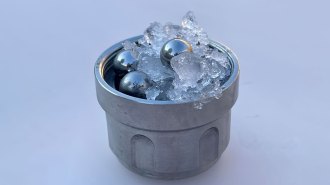 Physics
PhysicsWater is weird. A new type of ice could help us understand why
A newfound type of amorphous ice with a density close to liquid water could help scientists make sense of water’s quirks.
-
 Animals
AnimalsAre your cats having fun or fighting? Here are some ways to tell
Certain behaviors indicate if your cats’ interaction is friendly, aggressive or something in between, a new study finds.
-
 Archaeology
ArchaeologyVikings brought animals to England as early as the year 873
A chemical analysis of cremated remains offers physical evidence of the arrival of Norse animals to England in the ninth century.
By Anna Gibbs -
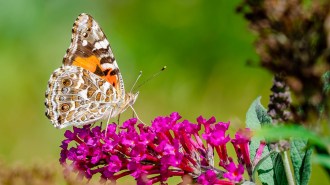 Life
Life76 percent of well-known insects fall outside protected areas
Protected areas can provide safe havens for insects, but many existing ones fall short, a new study finds.
By Freda Kreier -
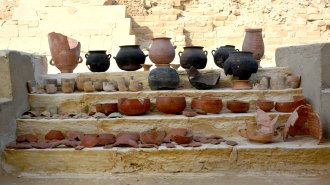 Archaeology
ArchaeologyChemical residue reveals ancient Egyptians’ mummy-making mixtures
Chemical clues in embalming vessels reveal previously unknown ingredients used to prepare bodies for mummification and their far-flung origins.
By Bruce Bower -
 Science & Society
Science & SocietyHere are 7 new science museums and exhibitions to visit in 2023
The Grand Egyptian Museum is slated to open, as well as new exhibitions dedicated to space travel, the Galápagos Islands and more.
By Erin Wayman -
 Health & Medicine
Health & MedicineThe deadly VEXAS syndrome is more common than doctors thought
The recently discovered inflammatory disease, VEXAS syndrome, typically occurs in men over 50, affecting nearly 1 in 4,000 in the United States.
By Meghan Rosen -
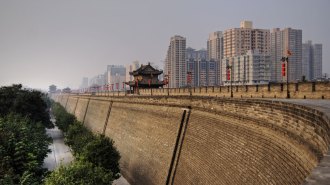 Physics
PhysicsMuon scanning hints at mysteries within an ancient Chinese wall
Density fluctuations within the ancient rampart encircling the city of Xi’an could be defects or yet-to-be-discovered archaeological finds.
-
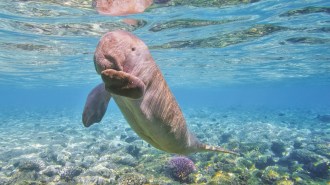 Life
LifeA new metric of extinction risk considers how cultures care for species
Conservation efforts should consider relationships between cultural groups and the species important to them, researchers argue.
By Jude Coleman -
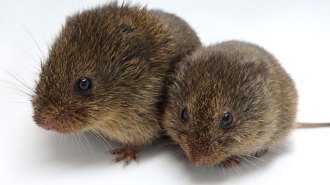 Animals
AnimalsPrairie voles can find partners just fine without the ‘love hormone’ oxytocin
Researchers knocked out prairie voles’ oxytocin detection system. They weren’t expecting what happened next.
-
 Archaeology
ArchaeologyMysterious marks on Ice Age cave art may have been a form of record keeping
Hunter-gatherers during the Ice Age may have recorded when prey mated and gave birth, suggesting that these people possessed complex cognitive skills
By Anna Gibbs -
 Climate
ClimateIt’s possible to reach net-zero carbon emissions. Here’s how
Cutting carbon dioxide emissions to curb climate change and reach net zero is possible but not easy.